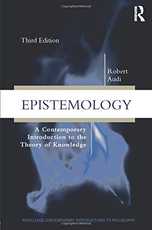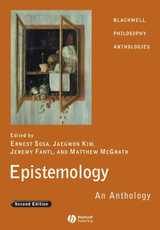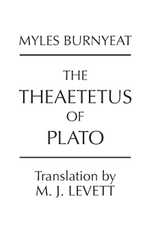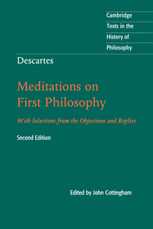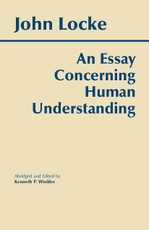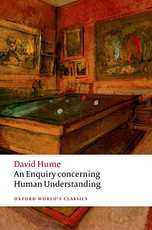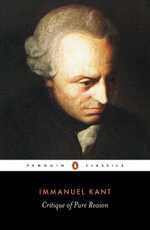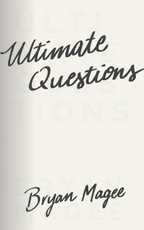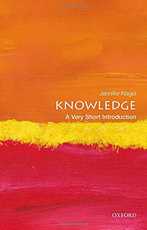
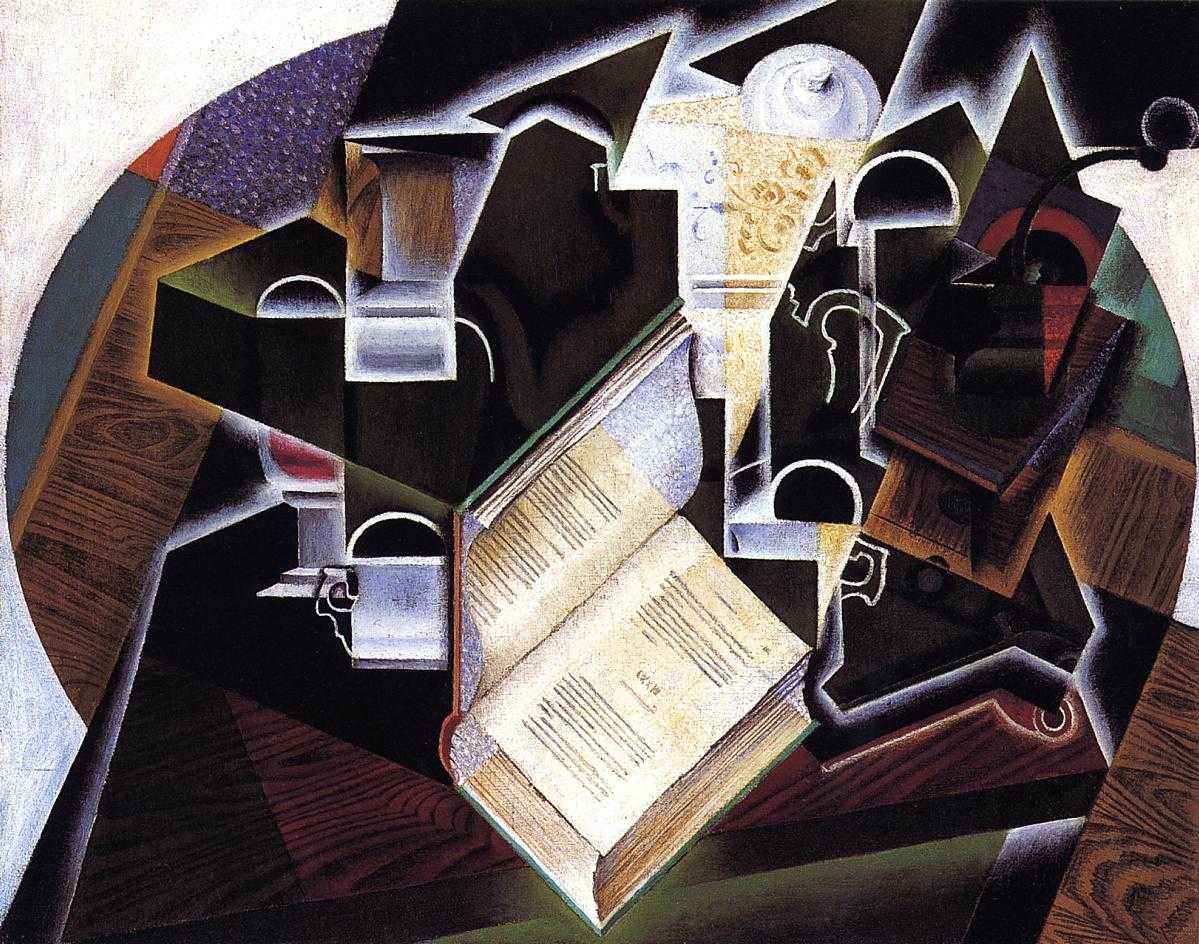
Epistemology The Best 9 Books to Read
What is knowledge? What does it mean to ‘know’ something? What makes knowledge possible? How do we come to understand things? Are we born with innate knowledge, or is knowledge only acquired through sensory experience? Are our experiences of the world trustworthy? Do the findings of modern science have secure, logically-sound foundations? Moreover, is the potential of human knowledge unlimited? Or is it curtailed by our sensory apparatus and brainpower?
All these questions and more form the basis of the branch of philosophy known as epistemology, the study of knowledge.
While metaphysics investigates the fundamental nature of reality and ponders what exists (see our explainer of what metaphysics is, and our reading list of the best books of metaphysics), epistemology asks how we can even know what exists.
Do our experiences truly grant us access to ‘reality’? Can our judgements of the world be justified?
From Socrates declaring all he knows is that he knows nothing, Descartes worrying if the world around us is real, John Locke insisting there is no such things as innate knowledge, through to the more technical arguments of the modern day around whether evidence can rationally constrain or inform our beliefs: philosophers throughout the ages have endlessly debated questions around our capacity for and access to knowledge.
The stakes? Only the status of everything we know!
In one concise email each Sunday, I break down a famous idea from philosophy. You get the distillation straight to your inbox:
💭 One short philosophical email each Sunday. Unsubscribe any time.
This reading list features a mix of primary and secondary texts to give you a wide ranging overview of epistemology.
From introductions and contemporary anthologies to epistemological classics from the greats themselves: consuming this list will provide you with everything you could possibly want to know about knowing.
1. Knowledge: A Very Short Introduction, by Jennifer Nagel
Published in 2014, Canadian philosopher Jennifer Nagel's Knowledge: A Very Short Introduction is a brilliant starting place for anyone curious about epistemology.
In highly readable, thought-provoking style, Nagel explains the formation of major historical theories of knowledge, and frames them through a contemporary lens. Coming in at an accessible 152 pages, this is a very nice entry point to the major discussions within epistemology.
2. Epistemology: A Contemporary Introduction to the Theory of Knowledge, by Robert Audi
Robert Audi is the John A. O'Brien Professor of Philosophy at the University of Notre Dame, and in his comprehensive 2010 Epistemology: A Contemporary Introduction to the Theory of Knowledge he offers expanded discussion and clarity around the key themes of epistemology.
Judged to be essential reading for serious students of knowledge, at 432 pages this is a more in-depth introduction to epistemology that authoritatively presents all sides of the debates.
3. Epistemology: An Anthology, by Ernest Sosa
If you’re after a one-stop shop for all things epistemology, look no further than American philosopher Ernest Sosa's monumental Epistemology: An Anthology, published in 2008.
Sosa teams up with fellow philosophers Jaegwon Kim, Jeremy Fantl, and Matthew McGrath to organize the most important epistemological writings of past and present by subject.
Approaching papers in such context results in a thoroughly rewarding reading experience, and you'll come away with a holistic understanding of how debates around skepticism, the nature of knowledge, and epistemic justification have evolved over the years. At 736 pages, this anthology’s a beast — but you won’t need another.
4. Theaetetus, by Plato
Turning from introductions and anthologies to primary epistemological texts, where better to start than with a discussion of knowledge that, though over two thousand years old, is one of the subject's finest works and still provokes debate today?
Among Ancient Greek philosopher Plato's best dialogues, Theaetetus is a conversation between Socrates and a student focused on the question: what is knowledge? The discussion is entertaining, illuminating and wide-ranging.
This particular edition features an excellent commentary from late scholar Myles Burnyeat, which lucidly contextualizes and enriches Plato's thought. For anyone interested in knowledge, Theaetetus is an essential addition to the bookshelf.
5. Meditations on First Philosophy, by René Descartes
René Descartes’s 1641 Meditations on First Philosophy is perceived to mark the beginning of modern philosophy in the Western tradition, and is still carefully studied in undergraduate philosophy classes as a foundational text to this day.
No wonder: in highly accessible, confessional style, Descartes manages to articulate some of the most troubling philosophical problems we face — all in under 100 pages.
An epistemological masterwork, Descartes's Meditations on First Philosophy throws everything we know into doubt with enthralling literary passages. Its historical significance — as well as its entertaining and profound discussion of skepticism — makes it essential to this list.
6. An Essay Concerning Human Understanding, by John Locke
John Locke’s 1689 An Essay Concerning Human Understanding is one of the most important philosophical works of all time. It forever immortalized Locke as the empiricist of philosophy, as he argues that human beings are born as blank slates, and that it is experience and experience only that furnishes the mind with ideas.
This was in stark contrast to his rationalist predecessors and contemporaries, who believed it to be self-evident that we’re all born with innate ideas and knowledge.
With this work, Locke formally started an argument that philosophers are still having today. Its originality and profundity make An Essay Concerning Human Understanding a must read for anyone interested in where our ideas come from.
7. An Enquiry Concerning Human Understanding, by David Hume
Given the near-identical title, Scottish philosopher David Hume’s 1748 An Enquiry Concerning Human Understanding might initially be thought of as some sort of tribute act to Locke’s essay listed above. Hume does indeed follow Locke’s general line of empirical thinking, but arguably goes further in declaring that any investigation into what we can know not grounded by evidence-based logic should be “committed to the flames.”
If Locke is the empiricist of philosophy, then Hume is the skeptic: he establishes a number of now infamous problems with our concepts of causation, matter, and the self — believing them all to be fictions.
A champion of truth seekers everywhere, Hume pulls no punches in his skepticism of thinking apparently untethered from the world of experience. An Enquiry Concerning Human Understanding is not only a core text of epistemology (and indeed of metaphysics), but a fantastic introduction to philosophy as a whole, and rewards repeated readings.
8. Critique of Pure Reason, by Immanuel Kant
German philosopher Immanuel Kant, roused from a self-described dogmatic slumber by the provocative writings of David Hume, sets out to rescue our knowledge from skepticism in his 1781 masterwork, Critique of Pure Reason.
This landmark book seeks to unite the empiricism of Locke and Hume with the rationalism they railed against, arguing that reason precedes and makes possible our experience of the world.
A difficult but staggeringly influential and profound work, Kant’s Critique of Pure Reason is essential reading for any serious student of epistemology.
9. Ultimate Questions, by Bryan Magee
Fast forward to 2017, and British philosopher and broadcaster Bryan Magee reflects on his long career of thinking about and popularizing the most profound questions of philosophy with his short but stunning Ultimate Questions.
Nearing the end of his life (he passed away in 2019), Magee writes with forceful mastery about the human predicament and the limits to what we can know.
Referencing the epistemological thoughts of other philosophers featured on this list, Magee’s Ultimate Questions is a moving meditation on the value of why we question things at all. It’s 144 pages that anyone, not just those interested in epistemology, would benefit from reading.
Further reading
Are there any other books you think should be on this list? Let us know via email or drop us a message on Twitter or Instagram.
In the meantime, why not explore more of our reading lists on the best philosophy books:

View All Reading Lists
Essential Philosophy Books by Subject
About the Author

Get one mind-opening philosophical idea distilled to your inbox every Sunday (free)

From the Buddha to Nietzsche: join 25,000+ subscribers enjoying a nugget of profundity from the great philosophers every Sunday:
★★★★★ (100+ reviews for Philosophy Break). Unsubscribe any time.

Latest Breaks
Each philosophy break takes only a few minutes to read, and is crafted to expand your mind and spark your curiosity.
